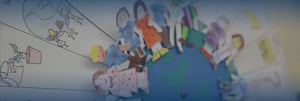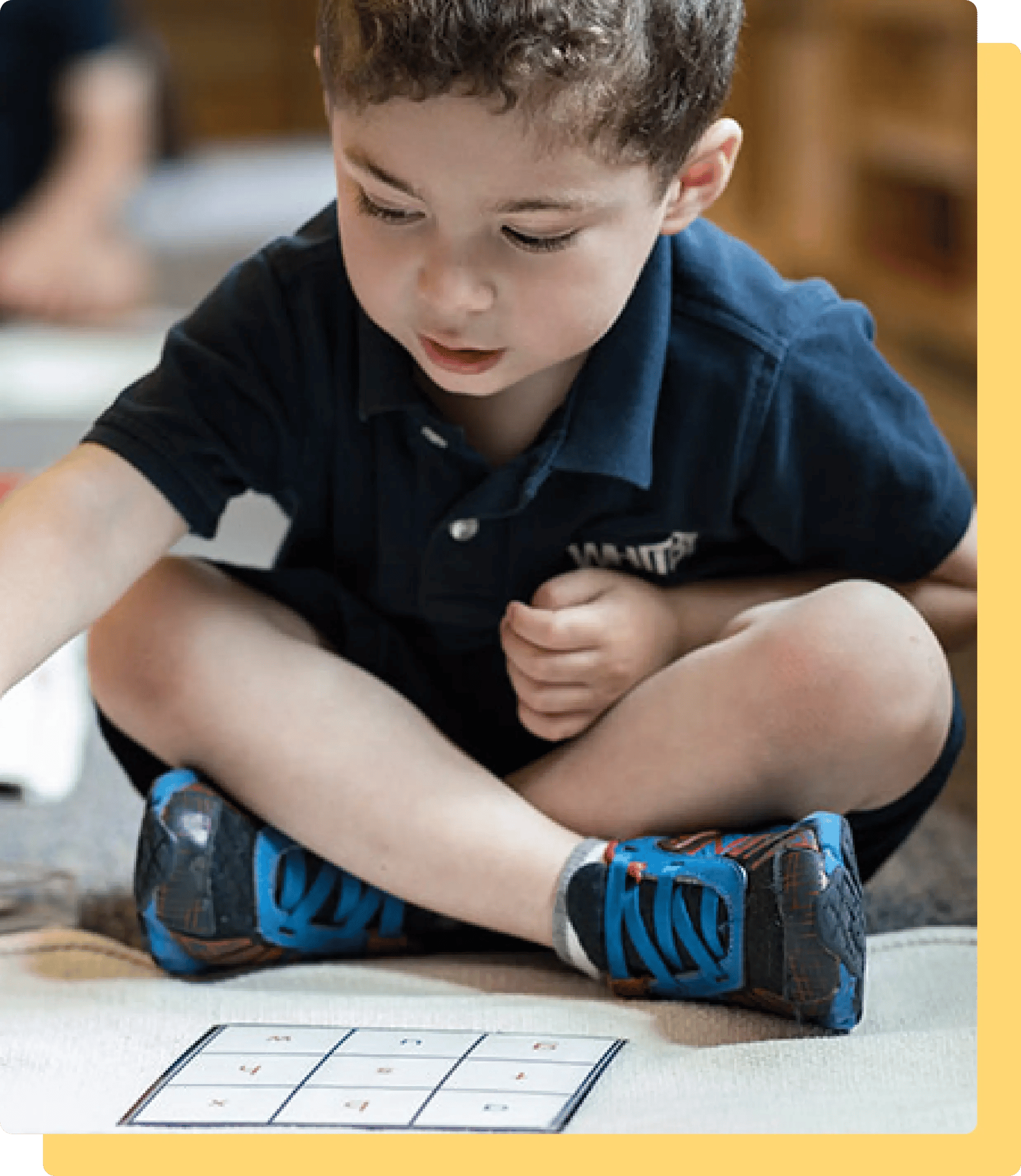
The Whitby Educational Continuum
“A Whitby education is about allowing students to define success on their own terms by inspiring their love of learning, broadening their sense of responsibility, developing their critical thinking skills and empowering them to take action in a global community.”
Let’s be honest - all parents want their child to be successful. The school you choose for your child plays a key role in your child's development and determining what that success looks like.
But what if we all take a step back and ask ourselves something - what does success look like for my child? Chances are, every answer would differ because we are all unique, and so are our children. At Whitby, we believe the best way to help children prosper is to empower them to answer that question on their own.
A Whitby education is about allowing students to define success on their own terms by inspiring their love of learning, broadening their sense of responsibility, developing their critical thinking skills, and empowering them to take action in a global community. These are the ideals that we value and they inform our teaching, learning and curriculum development each and every day.
Past Meets Present
We’re a beacon for child-centered education and this can be evidenced in the inspired choices we have made as a school over and over again since our inception in 1958. The history of a Whitby education began when a group of Greenwich families imagined a school that would embrace a new style of teaching and learning in America based on the philosophy of Maria Montessori. Shortly thereafter, Whitby became the birthplace of the American Montessori Society and led a revival of Montessori schools in the US.
Whitby continued its innovative educational leadership in 2007 with the integration of the internationally pace-setting and highly regarded International Baccalaureate (IB) program. Whitby received IB accreditation in Spring 2010, becoming the first school in the United States to be accredited by both the American Montessori Society (accredited with non-traditional Montessori age groupings) and the International Baccalaureate Organization (18 months through Grade 8).
Today, a Whitby education is supported by a strong foundation in these two exceptional curricular frameworks but it is best understood by looking at the outcomes we value and the ways we inspire a passion for learning in our students.

Approaches to Learning
The Approaches to Learning are lifelong learning opportunities and create a platform for understanding the world around us; creating our own thoughts, ideas and, opinions; challenging the status quo; or extending the thinking of others. They comprise of five transdisciplinary essential skills:
- Communication Skills
- Social Skills
- Self-Management Skills
- Research Skills
- Thinking Skills
- Organization Skills: How can you manage time and tasks effectively?
- Affective Skills: How can you manage your state of mind?
- Reflection Skills: How can you (re)consider the process of learning?
- Information Literacy Skills: How can you find interpret, judge, and create information?
- Media Literacy Skills: How can you interact with media to use and create ideas and information?
- Critical Thinking Skills: How can you analyze and evaluate issues and ideas?
- Creative Thinking Skills: How can you generate novel ideas and consider new perspectives?
- Transfer Skills: How can you use skills and knowledge in multiple contexts?
These skills are timeless and assist us, no matter what our age or our level of experience in school or in the workplace, to navigate all the information and challenges that are thrown at us on a daily basis.
At Whitby we see these skills in action from as young as Stepping Stones when our youngest students (18 months to 3 years old) are developing a sense of organization and focus on the task at hand. Their collaboration skills are developed as they begin to understand that they are part of a learning community through their time and discussions in circle with their teachers (Suggested Reading: 8 Developmental Milestones Your Child Should Achieve Before Kindergarten.) This extends into Primary (3 to 6 years old) and Grades 1 and 2 as students continue to develop their literacy and communicate in multiple ways with their peers or their teachers individually and in small or large groups.
In Lower School, our Grade 4 IB PYP Exhibition challenges our students to utilize aspects of each of the five essential skills to take ownership of their own learning journey for six to eight weeks on any aspect they wish related to the central idea that understanding global and local issues allows us to collaborate, take action, and make a difference.

Grade 5 sees the transition from our Lower School to our Middle School and students take on more and more responsibility for their organizational skills as they move between subject areas and develop their self-management skills.
Throughout the Middle School students further develop their transferal skills as they explore concepts across subject areas, in
preparation for their Grade 8 Community Project, a personal learning exploration on a concept the student is passionate about that is shared with the Whitby community prior to graduating.
Exploring our school’s mission through our innovative learning continuum, and the development of the skills outlined in the IB Approaches to Learning, ensure that our students are not only ready for their transition to High School but that they are well prepared and determined to face the opportunities and challenges that life’s journey will bring their way.